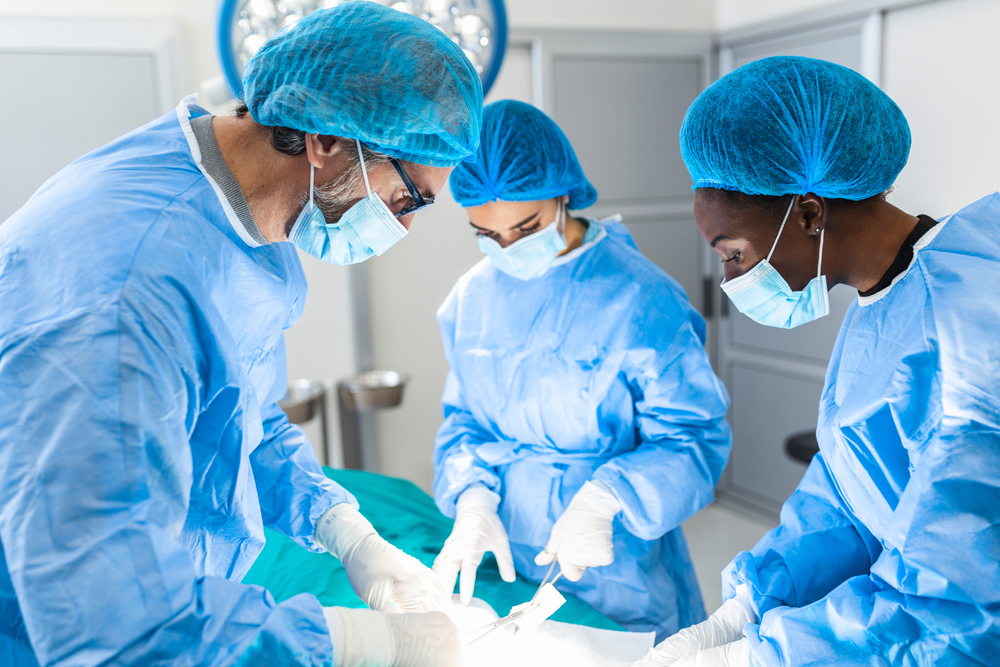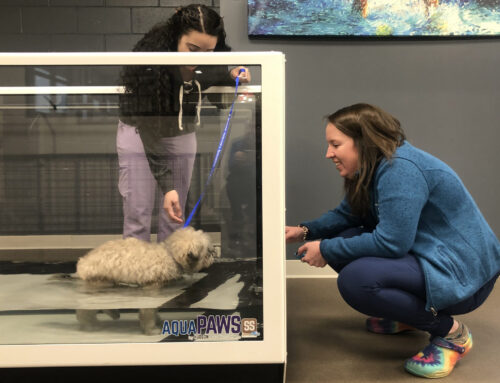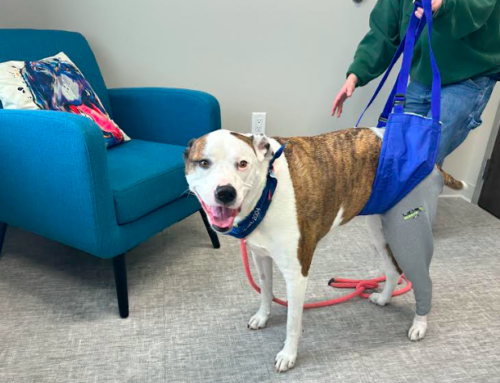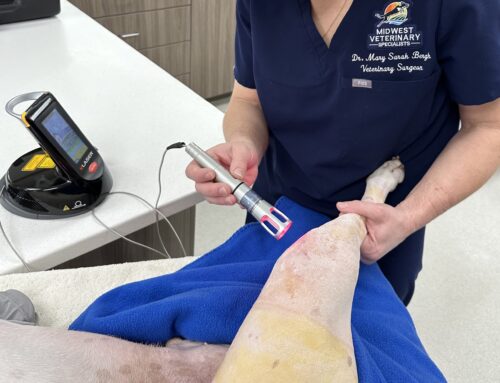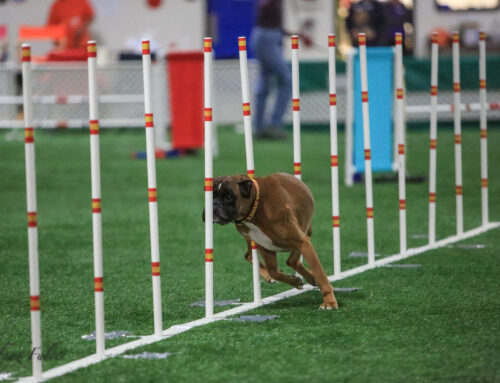If your pet needs surgery, you want them to receive the best care possible, and you want someone who has the required training and experience to perform their procedure. Our team at Midwest Veterinary Specialists wants to explain how your pet can benefit from a board-certified veterinary surgeon’s expertise.
Requirements to become a board-certified veterinary surgeon
The first step is to become a veterinarian, which requires three to four years of undergraduate classes plus an additional four years of veterinary school. Veterinarians who choose to specialize in surgery must complete several additional years of training after veterinary school graduation. To become a veterinary surgeon, those requirements include::
- Internship — A one-year internship must be completed in small animal medicine and surgery. In many cases, additional internships or fellowships are taken specifically to focus on surgery.
- Residency — Following the internship, a rigorous three- to four-year residency focused on veterinary surgery must be completed under the mentorship of board-certified veterinary surgeons.
- Experience — In addition to surgical training, at least 80 hours of training under a board-certified veterinary anesthesiologist’s supervision, at least 80 hours under a board-certified radiologist’s supervision, at least 80 hours under a board-certified internal medicine specialist’s supervision, and at least 80 hours of training under a board-certified pathologist’s supervision is mandatory.
- Publication — Residents are required to perform original research and write a scientific report that successfully undergoes peer-review and publication during their training.
- Examination — After completing the residency, they must pass a comprehensive examination demonstrating that they meet the strict standards of board certification.
A veterinarian who has met these requirements is known as a Diplomate of the American College of Veterinary Surgeons (DACVS) (i.e., a board-certified veterinary surgeon).
Ways your pet can benefit from a board-certified veterinary surgeon’s expertise
Routine procedures, such as spay and neuter surgeries, are commonly performed by a general veterinary practitioner, but certain situations are better handled by a board-certified veterinary surgeon:
- Complete patient care — Board-certified veterinary surgeons have the skills and experience to evaluate, diagnose, and formulate surgical and non-surgical treatment plans for patients with orthopedic, neurological, and sports medicine-related injuries.
- Complicated cases — Board-certified veterinary surgeons undergo extensive training to ensure they have the skills necessary to address complicated cases, to minimize complications, and maximize outcomes from the surgery.
- Specialized equipment —Board-certified veterinary surgeons have better access to, and training in, specialized diagnostic, surgical, and monitoring equipment that certain procedures require. These can include CT scanners, MRI, arthroscopy, and advanced monitoring machines to care for patients under anesthesia.
- Other veterinary specialists — Many times, your surgeon will collaborate with other specialists, such as a board-certified radiologist, board-certified anesthesiologist, or a board-certified internal medicine specialist to provide comprehensive care to your pet.
- Knowledgeable technicians — Veterinary technicians who work with board-certified surgeons have been trained to care for pets undergoing surgery and help with all of your pet’s needs.
- Postoperative monitoring — A board-certified surgeon will monitor your pet through the recovery process to treat pain, prescribe a rehabilitation program, assess recovery to minimize complications, and allow your pet to have the best recovery possible after surgery.
Common referral veterinary surgeries
Your primary veterinarian focuses on your pet’s daily needs, and may refer your pet to a veterinary surgeon to ensure they receive the best possible care. Procedures frequently referred to veterinary surgical specialists include:
- Cranial cruciate ligament (CCL) treatment— Procedures such as tibial plateau leveling osteotomy (TPLO), tibial tuberosity advancement (TTA), extracapsular suture stabilization (i.e., lateral suture), and the Tightrope technique require advanced surgical skills. Arthroscopy can be used to minimally invasively evaluate the joint and treat meniscal tears.
- Fracture repair – Repair of broken bones with plates, screws, pins, or interlocking nails require advanced training and expertise.
- Elbow dysplasia treatment — Arthroscopic surgery is most commonly needed to treat elbow dysplasia. A board-certified surgeon has the skills and equipment to successfully perform these surgeries.
- Hip, elbow, and knee replacement — Specialized equipment and advanced surgical skills are necessary to perform joint replacements in cats and dogs.
- Herniated intervertebral disc disease (IVDD) and spinal decompression — Advanced skills are necessary to identify the correct spinal location and ensure no damage to your pet’s spinal cord while they carefully decompress the spinal cord.
- Gastric dilation volvulus (GDV) — GDV correction is a complicated emergency surgical procedure that requires expert knowledge and skill to treat.
- Wound management and skin reconstruction — Advanced training is needed to reconstruct and manage certain wounds through skin flaps and grafts.
- Congenital defects — Repairing congenital defects can be complicated, and requires expert knowledge and training.
- Cancer surgeries —Removing cancers completely requires expert knowledge and training to offer your pet the best possible outcomes.
Questions to ask your primary veterinarian
If your pet needs surgery, the American College of Veterinary Surgeons (ACVS) recommends that you ask your primary veterinarian these important questions:
- How many times have you performed this surgery, and how recently?
- Does the surgery require specialized equipment and, if so, do you have easy access to and experience with the equipment?
- Would advanced diagnostic imaging, such as computed tomography (CT) or magnetic resonance imaging (MRI), improve surgical planning?
- Who will formulate the anesthesia protocol, and how will my pet be monitored during surgery?
- Are alternative procedures, such as minimally invasive procedures, available?
- Would my pet benefit from a board-certified veterinary surgeon performing this procedure?
- Will my pet need to stay overnight and, if so, who will monitor them?
Your primary veterinarian’s involvement
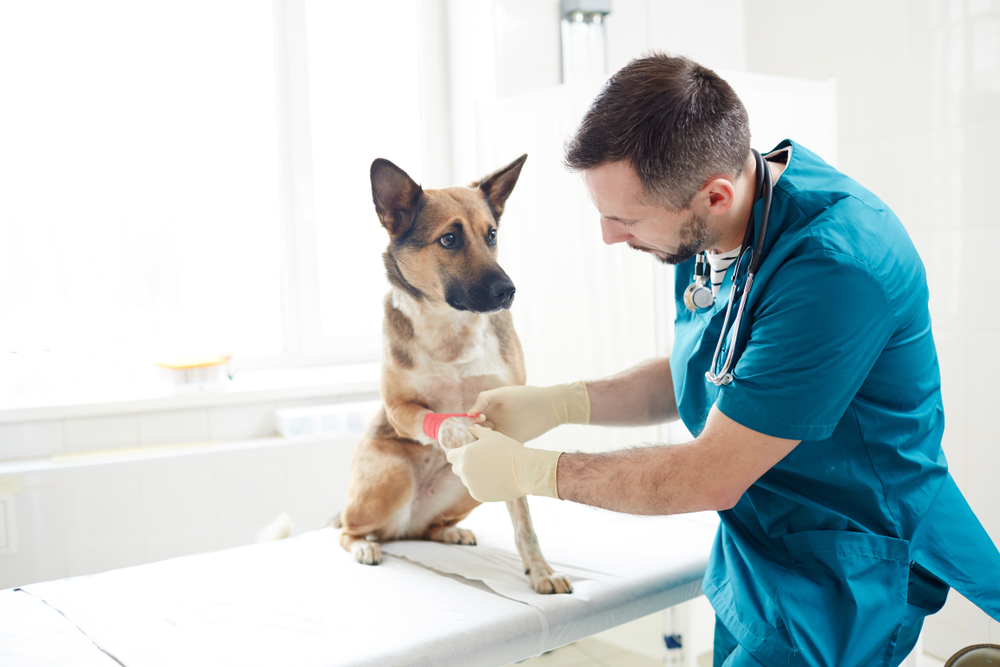
Your primary veterinarian will help identify the initial problem and oversee your pet’s pre-surgical care. Depending on your pet’s particular problem, your primary veterinarian may perform follow-up rechecks as well. At Midwest Veterinary Specialists, we work closely with your primary veterinarian to ensure your pet receives the best possible care, so they can recover as quickly as feasible.
Contemplating a surgical procedure for your pet can be a stressful time. Contact our team at Midwest Veterinary Specialists, and let us alleviate your concerns, and ensure your pet gets the best diagnostic and surgical care.


